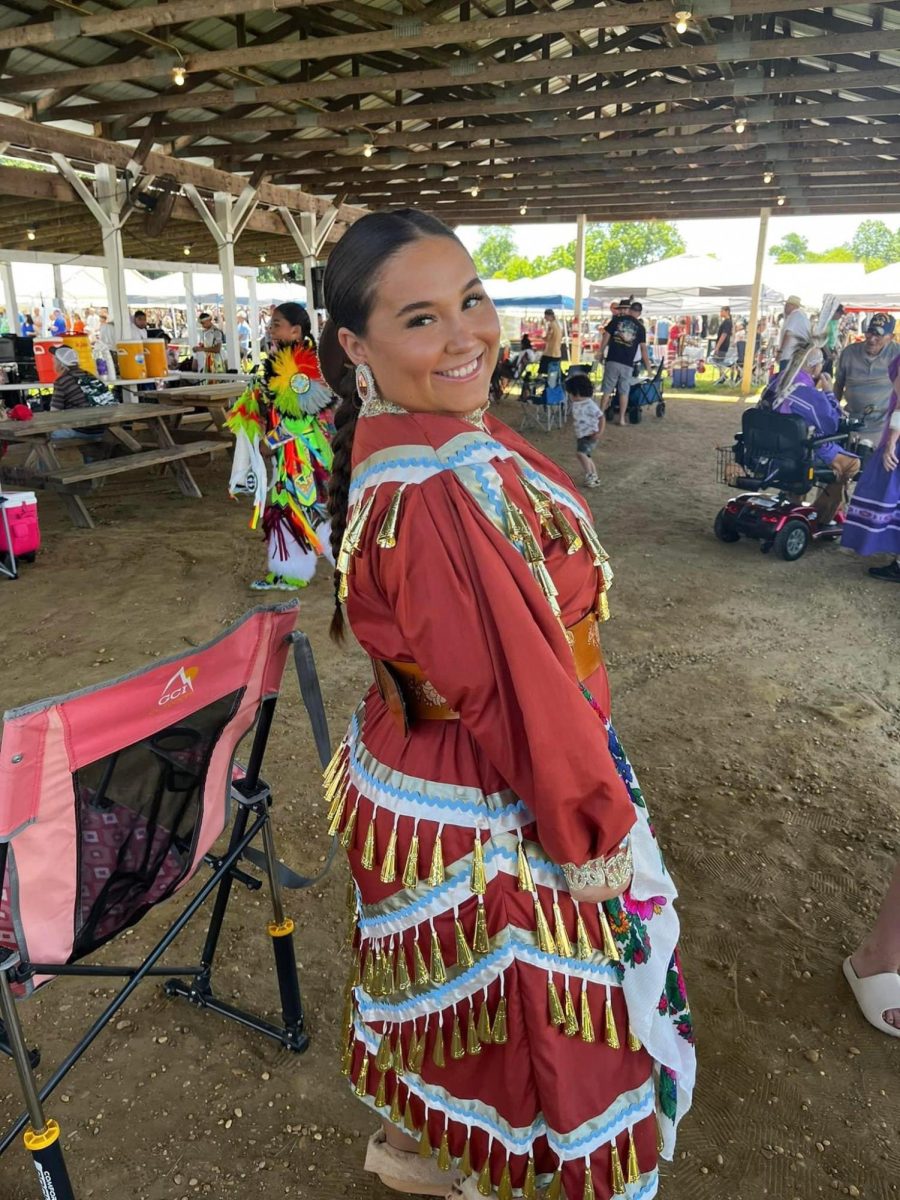Indigenous People’s Day took place on Oct. 14, bringing attention to the lives and struggles of indigenous groups around the world, though more specifically centered within the United States.
Rowan University boasts a commitment to diversity, with the website page for the Division of Diversity, Equity, and Inclusion mentioning that when the division was set up in 2019 it was the first of its kind.
Despite this, only 0.113% of Rowan students identified as American Indian or Alaska Native, and only 0.0921% identified as Native Hawaiian or Pacific Islander.
Sara Borden is an archivist in the archives and special collections department of the Campbell Library. Borden stewards some materials relevant to the campus’s indigenous population and the Lenni-Lenape tribe, who were the original inhabitants of New Jersey.
According to Borden, the first Indigenous students at Rowan, which was Glassboro State College at the time, were individuals who tried to pass as white to avoid discrimination or scrutiny when they came to study at the campus in the 70’s and 80’s.
“So sometimes folks that came sort of passed, and didn’t acknowledge that they were students of color. So that makes it sometimes hard to figure out historically, who was indigenous and who was of a different race,” said Borden.
The first recorded Indigenous student at Rowan was not a member of the Lenni-Lenape tribe, hailing instead from the Midwest.
The population of Lenni-Lenape students at Rowan University has been historically small, with only a few Indigenous students throughout the campus at a time. Some of this is explained by the series of displacements to the Midwest and then throughout that region, the tribe suffered that took place at various intervals throughout the 18th, 19th, and 20th centuries.
With the help of Chief Mark “Quiet Hawk” Gould, the tribe began to regroup in the area in the late 1970’s.
Though the headquarters for the Nanticoke Lenni- Lenape Tribe is located in Bridgeton, just 40 minutes from Rowan’s campus, only a few student members of indigenous tribes attend classes at the university.
“It’s not super easy now, to be a non-white student, but it was far more tumultuous in the early, the first 60 or so years of our existence, than it is now,” said Borden.
In recent years, Rowan University released a land acknowledgement, which is a formal statement recognizing Indigenous tribes and peoples as the original inhabitants and stewards of the land the university sits on. In 2023, a revised acknowledgement was released, after the DEI department received feedback from the Lenni-Lenape Nation.
Along with the land acknowledgment, the university also has some classes and research resources dedicated to Indigenous studies, though there is no official major or minor offered in the field.
Some Indigenous students of the Lenni-Lenape tribe do come to Rowan to study. Brianna Dagostino attended Montclair University for her undergraduate degree and helped create an Indigenous studies minor at Montclair. After graduating, she came to Rowan to earn her master’s degree.
“Nanticoke Lenni-Lenape Tribe of South Jersey, we’re located all in South Jersey. Rowan is our school, that’s the closest to us and I was one of the only tribal members actually attending college. There wasn’t a population of us, just indigenous people in general. It was only me and one other indigenous student in the history master’s degree program,” said Dagostino.
Despite the lack of other Indigenous students around the community, Dagostino says that her professors were very open to her desire to hold events to spread awareness of the tribe, its history, and its culture.
These events included speaking engagements in different classes and halls, and the tribe’s dance group also came to the campus for a performance as a show of the continuing culture of the Nation.
Dagostino’s master’s thesis was also different from most, as her focus was the history of her tribe, and to honor the traditions of the Lenni-Lenape, the department allowed for the inclusion of oral histories.
“It included Indigenous oral histories, which is very different than what academia wants you to do. But Rowan was very open to the fact that there’s not that many Indigenous people here, and the Indigenous people that are here should be able to spread as much awareness as they can,” said Dagostino.
Though she was not able to speak on the undergraduate experience, as she has only attended Rowan for two years as a graduate student, Dagostino felt supported by professors during her time attending classes and felt proud of the work she had done inspired by her community and heritage.
“My favorite memory was probably finishing my master’s thesis because it was all about my tribe and modern racial stereotypes and issues that my tribe goes through… my department was so open, and just having that unanimous approval of passing my master’s thesis was definitely a great moment for me,” said Dagostino.
For comments/questions about this story DM us on Instagram @thewhitatrowan or email [email protected]
























































































































































!["Working with [Dr. Lynch] is always a learning experience for me. She is a treasure,” said Thomas. - Staff Writer / Kacie Scibilia](https://thewhitonline.com/wp-content/uploads/2025/04/choir-1-1200x694.jpg)









































